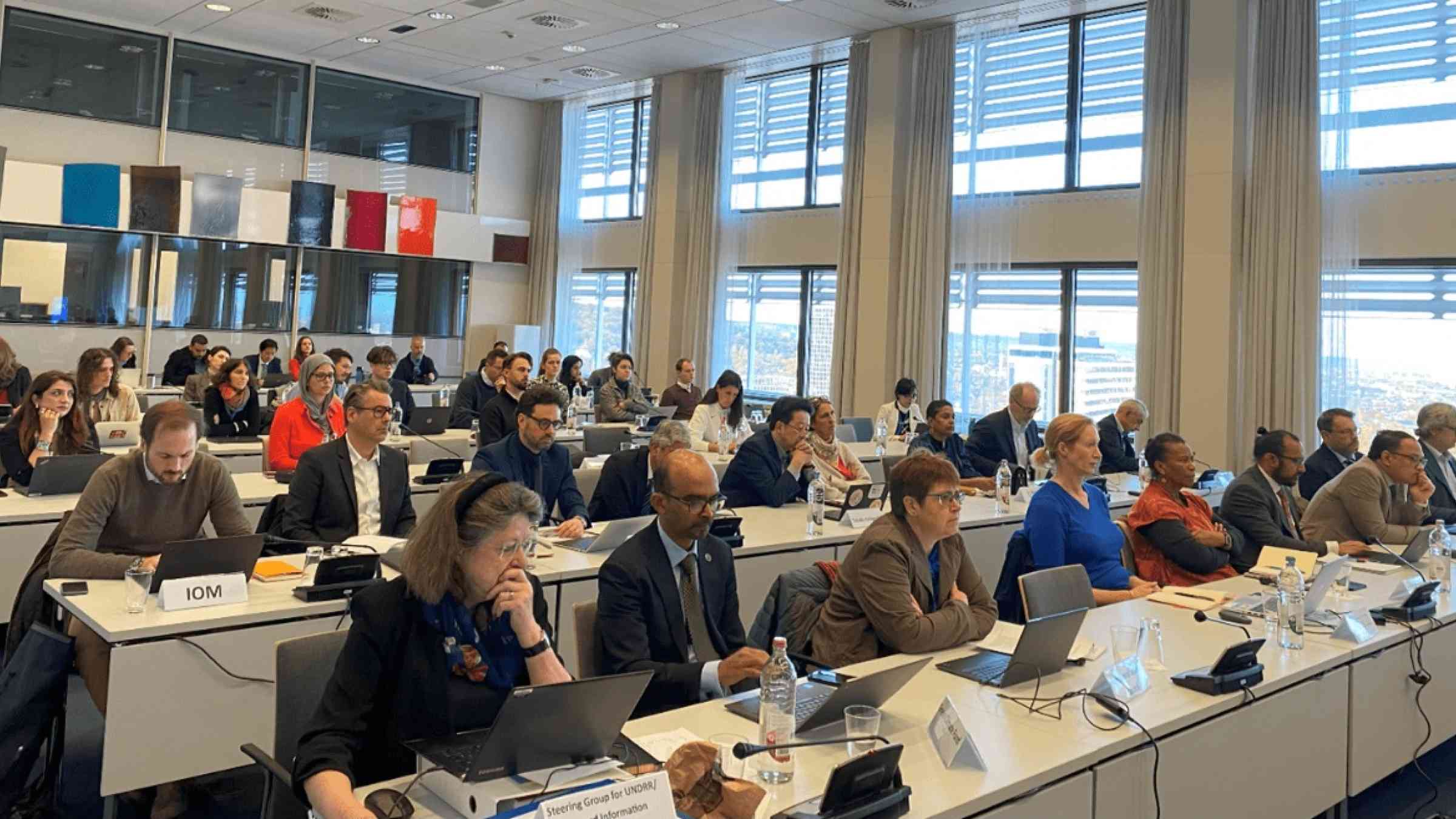
Over 50 experts participated in a workshop on assessing the impact of slow-onset events, organized in Bonn on 8 - 9 November 2023. More than 100 participants joined online. The workshop is part of the ongoing process to co-design and develop the next-generation disaster tracking system for hazardous events and losses and damages. This effort is co-led by UNDRR with UNDP and WMO. The workshop was organized in collaboration with the United Nations University - Institute for Environment and Human Security (UNU-EHS).
Workshop participants from different organisations and scientific bodies brainstormed to uncover challenges and underlying impacts from SOEs. These challenges include the lack of clearly identified start and end times of SOEs, the absence of thresholds and baselines, and the assessment of direct, indirect, and cascading impacts ranging from economic to non-economic/intangible losses. Further challenges result from the dynamic interaction within and across SOEs and with extreme and rapid-onset events.
Technical experts and SDG custodian organizations presented advances in addressing some of these challenges. They outlined the processes, data collection, and methodologies in use.
“We need standards, quality assurance, and partnerships to empower governments and citizens to contribute to record impacts and link them to events and processes to be able to better manage the risks now and in the future”,
said Paul Davies, Member of the WMO Expert Team on Cataloguing of Hazardous Events.
Participants pointed out that even when data exist, they are not systematically available or accessible. While investments are being made to make data accessible, the application of data remains an issue.
Bapon Fakhruddin, representing the Green Climate Fund, said:
“Baseline assessments on losses and damages, informed by standards and facilitated by a new tracking system, could inform GCF-supported investments by enabling countries to prioritize adaptation into their development plans and strengthening a culture of risk management.”
The discussion focused on scaling-up and repurposing existing impact assessment methods for extreme events need to be scaled-up and repurposed to be applicable for slow-onset events. Post-disaster needs assessments (PDNA) specialists, including seasoned experts like Asha Kambon and Domnique Blariaux, pointed to the applicability of the existing methodologies for assessing SOE impacts. PDNA and related processes are data-hungry, and investments need to include capacities beyond the costs of technology.
Rita Missal from UNDP said:
“PDNAs are well suited to assess loss and damage impacts given its well established practice widely applied by national governments with flexibility to adapt to different hazards, scale and guidance and training packages to facilitate adaptation to national contexts.”
Moving forward, participants agreed to leverage the existing and new data standards, including terminologies and hazard classifications. They will continue to work on statistical frameworks and explore machine learning as well as citizen science. Demonstrating use cases of data on SOEs is critical to ensure that data investments are sustainable. Experts highlighted use cases including planning instruments like adaptation and disaster risk reduction plans, and informing political action and support on loss and damage.
Paul Desanker from the UNFCCC Secretariat underscored the importance of data for knowing limits to survivability and coping with climate change impact as a basis for anticipating and responding accordingly.
Concluding the workshop, Animesh Kumar from UNDRR Office in Bonn, outlined some concrete next steps:
- Develop an issue brief based on the deliberations at the workshop;
- Integrate data on SOEs into the new tracking system;
- Enhance national and stakeholder capacities on impact assessments of SOEs as a core component of capacity development approach of the new tracking system;
- Further review and analyse available and potential data and assessment methodologies on impact related to SOEs, and
- Test and pilot assessment methods like PDNA on SOEs and engage with the UN, World Bank, and European Union PDNA expert group to review PDNA guidance for application to SOEs and non-economic losses.
The workshop also held a tribute to Prof. Saleemul Huq, who accelerated advocacy on loss and damage, including those resulting from slow-onset events (SOEs).
All workshop presentations are available for download here.